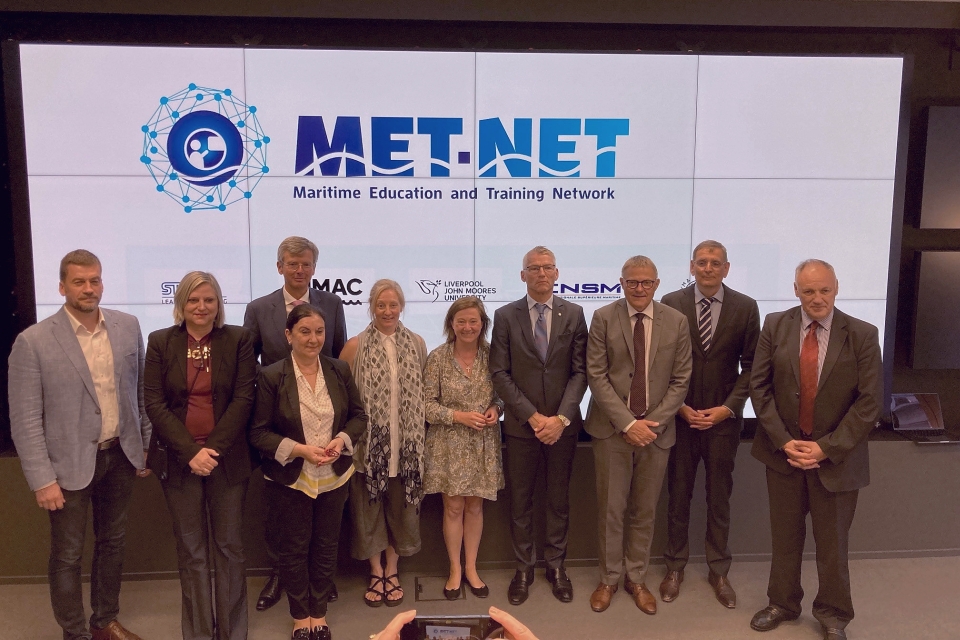Maritime professionals need to be up- and reskilled on a large scale. Rapidly emerging technologies, digital transformation on ships and in ship operations, and an increased focus on sustainability require future-proof skills. As an outcome of European Union funded project SkillSea, a new maritime skills strategy has been delivered.
The strategy provides stakeholders with guidance as it is recommended that curricula of maritime education and training providers adapt to these trends, and that modern technology and skills must be used to reposition maritime shipping professions.
Also read: MIWB wins Horizon grant for major European shipbuilding project
Project SkillSea
Project SkillSea started 4.5 years ago with the aim to ensure that Europe’s maritime professionals possess key digital, green, and soft management skills for the rapidly changing maritime labour market. SkillSea not only sought to produce a sustainable skills strategy, but also looked for ways to increase the number of maritime professionals – enhancing the safety and efficiency of this vital sector.
SkillSea has brought together 26 social partners, maritime industry, trade unions, research organisations, maritime academies and universities, education and training providers, and public authorities from fifteen different European countries.
The recommended repositioning of maritime shipping professions is also needed to give newcomers to the labour market a prospective career and that they can apply their talent in innovation, widen their knowledge on sustainability issues and deepen their mastery of digitalisation. When appropriately integrated in maritime education and training, including life-long learning, new skills support mobility and can enhance the attractiveness of a career in shipping.
Also read: VIDEO: How systems engineering can future-proof ships
MET-NET
As a direct project outcome of SkillSea, nine leading European maritime education and training providers have launched the Maritime Education and Training Network (MET-NET). This network aims to provide current and future maritime professionals with the best possible education. By participating in MET-NET, education providers can benefit from access to valuable resources, increased visibility and networking opportunities to ensure high quality of trained maritime personnel. MET-NET is open to all European maritime education and training providers.
MET-NET was launched on 31 May in Brussels during the closing conference of SkillSea, the pan-European project for future-proof skills in maritime transport, funded by Europe’s Erasmus+ programme.
Within SkillSea, a set of educational packages has been produced, including a toolbox to develop more educational material. MET-NET is a project outcome to strengthen the developed strategy for sustainable skills.
The network is supported by “founding partners” STC Group (Rotterdam, the Netherlands), École Nationale Supérieure Maritime (Le Havre, France), Svendborg International Maritime Academy (Svenborg, Denmark), Liverpool John Moores University (Liverpool, United Kingdom), University of Rijeka (Rijeka, Croatia), Constanta Maritime University (Constanta, Romania), Maritime Business School of Hamburg (Hamburg, Germany), Estonian Maritime Academy (Tallinn, Estonia), Norwegian University of Science and Technology (Trondheim, Norway).
Also read: New knowledge campus on Terschelling allows MIWB to expand








